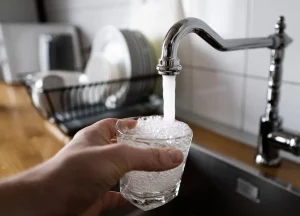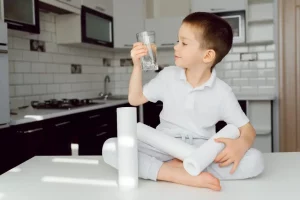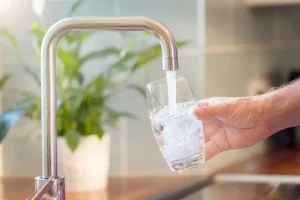It happens all day, sometimes without you even realizing it. You take a drink of water and the body starts the process of digesting almost immediately. You probably won’t think about it. It is amazing how quickly water digests.
Although it is easy to assume that water’s journey through the body takes a short time, since it is just water, the reality is that there are many twists and turns along the way. The liquid’s time to travel from the mouth to the destination depends on several conditions.
We explain how water is digested and the time it takes. We also discuss the health benefits of water, how much water you should drink each day, healthy hydration practices and how to make sure your water is safe and clean. Let’s go!
Understanding Water’s Journey through the Body
The most frequently asked question, mainly by water enthusiasts, is “Where does water go after you drink it?” This question is rarely answered adequately. Let’s follow water’s path through our bodies and talk about why it is so important for life.
How does water travel through the body?
The liquid that you put in your mouth is called the esophagus. It is a tube eight inches long connecting the throat and the stomach. The water reaches the stomach after passing through the esophagus. The water is absorbed into the bloodstream.
The water moves to the small intestine where it is almost all absorbed into cells membranes and the bloodstream. The large intestines absorb the remaining water. They extract as much water from the food that has been ingested as they can, and then excrete it from the body.
How fast is water absorbed?
Participants were asked to drink normal water that contained deuterium, which is a hydrogen isotope. This allowed researchers to track every gulp throughout their bodies. Within five minutes, half of the water was in the bloodstream. The remaining was absorbed within 11 to 13 minutes.
Researchers found that water taken on an empty stomach has a higher rate of water absorption. This can happen as soon as five minutes after drinking. Water has a simple molecular arrangement. Our bodies don’t need to break down water – unlike complex liquids such as food or drinks with high carbohydrate (such as sugar), fats, dyes, or protein. There is nothing you can extract from the water, other than the water itself which your body requires for many processes.
The study found that people who have eaten a lot before drinking water will slow down their absorption. This could lead to absorption taking up to several hours. The body doesn’t prioritize water digestion over food ingested. The body will allow water to enter the intestines only after it has digested the food.
What does water do for your body?
Water is a vital part of our bodies that helps us to feel better.
Purging toxins from the body is one of the most important roles that water plays. Toxins are unneeded, undesirable junk that remains in the body. To eliminate these toxins, the kidneys require plenty of clean, filtered drinking water. These vital organs will need to work harder to remove toxins. This can increase stress on the kidneys, and could lead to kidney problems, such as kidney stones, and other health issues. Filtered water is a great way to support your kidneys. It can remove some toxins and reduce the strain on your body.
Hydrating your skin with water can help you look healthier. Your skin will appear younger, brighter, and healthier if you drink enough water. If you don’t get enough water, collagen protein can crack and bind to your skin, making wrinkles and lines visible. You can also choose to not drink enough water. Your skin will look duller, drier and less youthful.
Water is also vital for preventing and treating constipation. A constipation condition is characterized by a decreased frequency of bowel movements or difficulty passing stool. Drinking enough water can help prevent or treat constipation. This is because it increases the water content in the intestines, which can soften stool and stimulate bowel movements.
Water is an important part of digestion. Water can be taken before and after meals to aid in the digestion process. This will allow your body to absorb nutrients faster. You will feel less bloated after eating.
Drinking water can help speed up the food’s movement through your body. Water helps to dissolve vitamins, minerals, as well as other vital nutrients, and transport them to various organs of your body. Water also improves circulation, increasing blood flow, and maintaining oxygen and nutrients in the body. A better circulation can have a positive impact on your overall health.











